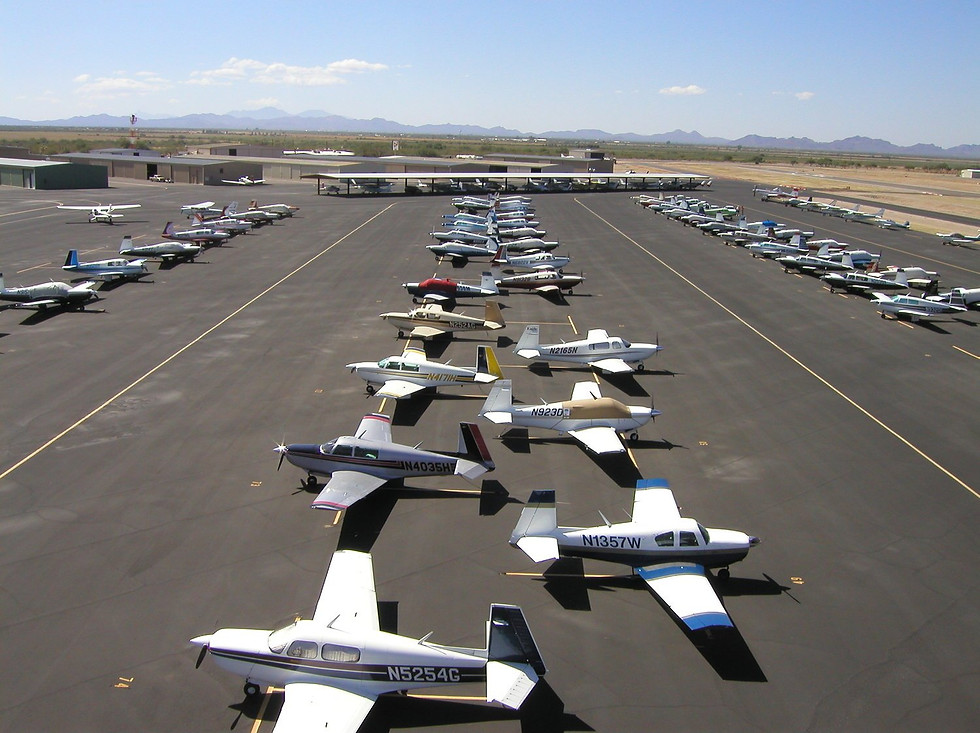By Rob Russell
The short answer is the airport slot is often the primary factor that determines when a flight operates. Slots determine when your flight will arrive and depart from its arrival and destination airports. Airport slots often make the news for their multi-million dollar sale prices at congested airports. But what is a 'slot,' who decides when an airline can fly into a facility, and why can they be so valuable?


An airport slot, landing slot, or takeoff slot can be described as permission granted to a specific airline by the operator of the airport. This critical period guarantees the airline in question the permission to take off and land at the airport during a specified time. All landing slots worldwide, except in the USA, are administered by the Geneva-based International Air Transport Association (IATA) Worldwide Airport Slots Group (WASG), which consists of 7 members each from the International Air Transport Association (IATA), Airport Council International (ACI) and the Worldwide Airport Coordinator Group (WWACG). (In the USA, they are determined by the Federal Aviation Administration.) According to this group, all airports, worldwide, fall into three categories:
• Level 1 non-coordinated airport
• Level 2 schedule facilitated airport
• Level 3 coordinated airport
Level 1 airports allow for flights to operate as they wish and there are no restrictions placed on the amount of flights and when they can operate. At level two airports, the rules regulating slots are less stringent, allowing airlines to submit schedules to the airport operator or governing body periodically. Rather than using an airline's history of flight's landing and taking off from said airport sticking to a strict schedule helps but is not mandatory.

Currently, there are over 156 Level 2 airports, which include names like Bangalore, Jakarta, Dubrovnik, Cologne, Budapest, and many others.
The highest level and most restrictive airports are at level 3. Here all slots are submitted to the WASG and after approval, airlines may commence operations into the airport, subject to the slots restrictions and conditions.

Presently there are 156 airports graded at level 2 and 195 graded at level 3. Airports at level 3 include Heathrow, Cape Town, Tokyo, Johannesburg and Paris CDG. Interestingly there is only one American airport at level 3 – New York JFK. It is not the size of the airport but the capacity that governs the level assigned. While Los Angeles handled nearly 500,000 flights in 2022 its size meant it could handle scheduling easily. However, Phuket Airport is smaller but sees far more demand for carriers around the globe, requiring stricter coordination

Landing slots have become tradeable and can earn an airline much income
Landing slots at some of the world's busiest airports can command high prices. Airlines have been given the right to trade or sell slots at several major airports, giving them the chance to expand in their target markets. There's no better example than London Heathrow which has been home to several eight-digit slot transactions before, and after, the pandemic.

Airlines want slots for two simple reasons: passenger convenience and traffic. The first will be to get business travellers into an airport as early as possible, to enable the business person to get a full day of work done at their destination. The second is to maximize connections at their hubs, and also those of their alliance partners, ensuring planes are travelling full, whilst departing during peak hours.

With London Heathrow Airport (LHR) being so congested and popular, prices of prime-time landing slots have been known to trade for millions of dollars. Slots selling has become a big business and are traded like commodities on a stock market. Airlines also agree not to reveal the prices they pay for some slots.

Between 2001 and 2012, Forbes notes that 200 trades involving 2,300 weekly slots were made. Typically early morning arrival slots have the most value and then lessen in price as the day moves on. In 2012, Heathrow Airport estimated that early morning landing slots were worth £15 million ($18.8mn) while lunchtime and early afternoon slots were worth £10 million ($12.5mn).

There are occasions where slots are handed back to the slot coordinators and are then allocated to other airlines at no cost to themselves. The allocation will be based on the slot requests made for that season, with a preference given to new entrants or those airlines that are bidding to fly to newer destinations, thereby increasing the number of destinations an airport serves. This, in turn, allows for more connections and increases the importance of the airport, when it comes to a hub and spoke-type operation.

Airlines rarely hand slots back to the coordinating council, and airlines prefer to sell off their slots when reducing schedules and capacity. An example of this, was when Air New Zealand ended its services to LHR in 2020, it sold some of its slots to another carrier for $27 million.

Whilst this was a hefty price to pay for the right to operate into Heathrow, it is nowhere near the $75m reportedly that Oman Air paid to the Air France/KLM group for a pair of morning Heathrow slots in 2016, after the group put up two slots for sale. For the Omani flag carrier, saw this as an opportunity to operate into a major European destination, which was necessary to enable them to expand and offer some sort of competition to the other bigger and major Middle East carriers.

During the COVID pandemic, slot authorities also issued waivers to the 80/20 use-it-or-lose-it rules, meaning airlines didn't have to fly at full capacity. Some airlines did not meet this waiver and lost their right to operate certain routes and schedules. Some airlines that had never operated into Heathrow were successful in getting slots approved. An example of this is the Indian airline, Vistara which was able to start and even expand operations.


























Comments